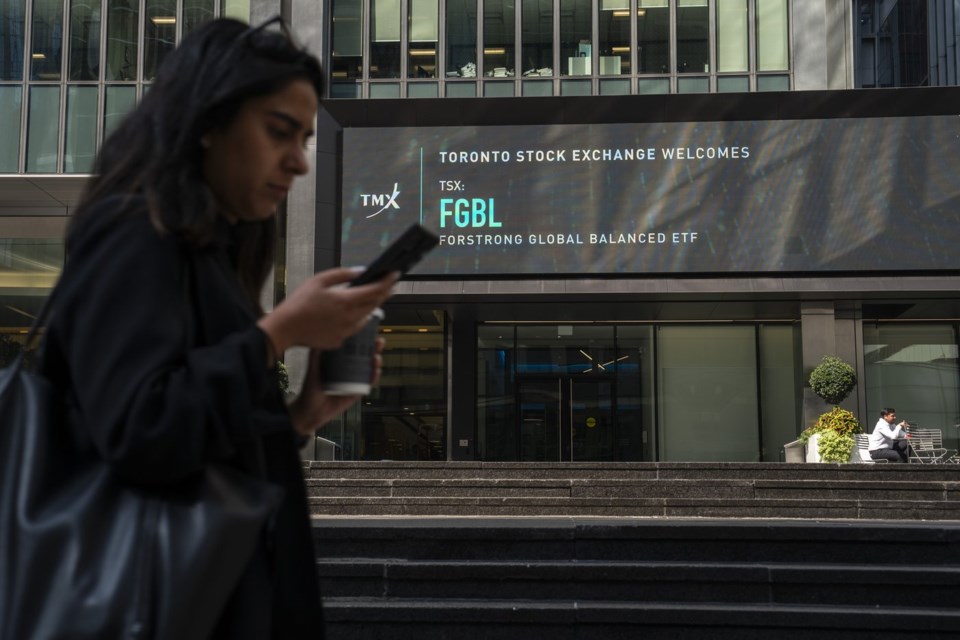Faced with the extreme market turbulence of the past week, money managers are staying the course and relying on their long-term investment strategies while also looking for opportunities amid the panic.
Kevin Burkett, portfolio manager at Burkett Asset Management, says his firm’s strategy isn’t predicated on timing markets or guessing where macroeconomic forces are headed.
Instead, it’s focused on a core basket of what he calls “all-weather businesses” that are less vulnerable to the wild swings of tariff-stressed investors.
"If the strategy isn't pinned on timing markets, if it's not pinned on geopolitical insights, then I think it's more reliable," said Burkett.
"The idea is ... when we go into these sort of stressed periods, we've already done the work proactively."
There have been extreme selloffs on the markets and a few big swings upward over the past week since U.S. President Donald Trump announced sweeping tariffs on countries around the globe.
Markets dove back into the red Thursday, one day after surging on the news that Trump would pause some of the tariffs for 90 days.
The approach a money manager will take depends on their mandate, said Ian Chong, portfolio manager for First Avenue Investment Counsel Inc.
"If you take a longer-term perspective, it's easier to digest in the sense that you know corrections do provide a reset for the markets, for them to move higher," he said.
"As a portfolio manager, you have to be able to separate the signal from the noise and take advantage of these kind of situations to upgrade the portfolio with quality companies."
The portfolio Chong manages is geared toward momentum, with exposure to many of the high-growth tech names that have driven gains over the past couple of years.
But around the middle of February as Trump started making good on some of his tariff threats, Chong said he starting trimming some risk from the portfolio and rotating toward areas of the market that are better able to weather an inflationary environment. That includes consumer staples like Dollarama and Loblaw, or Costco in the U.S., as well as gold, he said.
"It's not that we are exiting these positions by any means," he added. "They're generating good return on investment capital, so we believe they are still good-quality companies, but in times of heightened volatility ... we are looking to manage that."
Pierre-Benoît Gauthier, vice-president of investment strategy at IG Wealth Management, says his firm entered 2025 on the defensive side, and is now looking for good entry points on certain stocks as valuations become more attractive amid the volatility.
"If people are waiting for the drama to subside before they start to scale back in, they are going to wait for a long time," he said.
"This is going to be an event-driven market, and we feel like we need to start thinking in a sense of accepting that and scaling back in because valuations are getting much more attractive."
Investors should look into companies that are less sensitive to fluctuations in consumer demand, noted Gauthier.
"What we are looking at is also ... increasing exposure to less affected parts of the market, and I think this is likely to be a common theme everywhere," he said.
This report by The Canadian Press was first published April 10, 2025.
Rosa Saba, The Canadian Press




